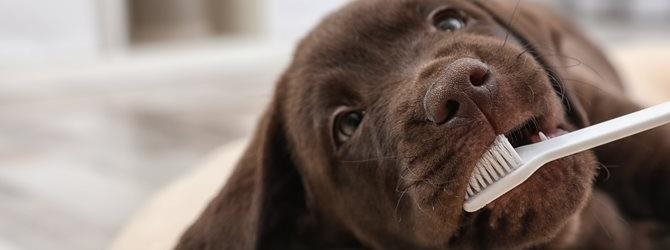After the vet: post-dental care guide for your pet
If your pet has had a dental procedure, it’s important to follow your vet’s post-procedure advice. This guide provides general guidance on post-dental care, covering immediate steps, follow-up appointments, anaesthesia recovery, home care, pain relief, food recommendations, handling emergencies, and specific care for tooth extractions.
Please be aware that the dental treatment process can vary depending on the vet practice you visit. Always consult your vet for specific details and recommendations tailored to your pet's needs.
Immediate steps to take
When you return to the vet to pick up your pet following their dental procedure, remember to make a follow-up appointment so the vet can monitor their progress. Your vet may also appreciate a call the day after to get an update on your pet's condition.
When you bring your pet home, try to make sure they’re comfortable and warm. Perhaps create a quiet space free from excitement, such as young children and other pets, where you can watch them closely.
Anaesthesia recovery
Your pet will likely be a little groggy and sleepy for up to 24 hours after the dental work. Contact your vet if your pet shows serious discomfort or unusual behaviour. Diarrhoea can occur but should clear up within a few days. If your pet has diarrhoea, you may need to stop the pain medication so please contact your vet.
Home care
For the first 24 hours after the dental procedure, keep your cat indoors and limit your dog’s access to the outdoors — and certainly don’t let them off the lead in public places. Check their teeth and gums for any signs of infection, such as redness, discharge, swelling, or irritation. If you notice any of these symptoms, call your vet.
Pain relief
Remember, managing your pet's pain is important to keep them comfortable. Even if your pet looks like they're feeling better, make sure to give them any painkillers or additional medication your vet has prescribed. Watch out for signs that your pet might be in pain, such as acting aggressively, making more noise than usual, panting a lot, or seeming agitated.
Food recommendations
If your pet was sedated or underwent a general anaesthetic for their dental procedure, you should reintroduce food gradually. Initially, offer a light, soft meal such as boiled chicken and rice or a plain scrambled egg, as your pet might still feel nauseous. A soft food diet is required for pets with extractions or dental work for at least five days. You can use specially-formulated wet food or moisten their regular kibble. Just be sure to follow your vet's instructions.
Tooth extractions
If your pet had teeth removed, there are some extra care steps to keep in mind. It's normal for there to be a little bleeding from their gums on the first day. Your pet may also have dissolvable stitches, which should go away on their own within two to four weeks. During this time, avoid giving your pet hard food or toys that could bother their healing mouth. Keep an eye out for any signs of problems, like bad breath, swelling around the jaw, or any unusual discharge from the nose or mouth.
While rare, dental extractions can occasionally lead to jaw fractures, particularly in cats and small dogs with severe dental disease. Your vet will take precautions to minimise this risk.
What to do in an emergency
If you notice severe bleeding, refusal to eat after 24 hours, lots of swelling, or if you think there’s an infection, call your vet immediately. If it’s out of hours (e.g. overnight or at the weekend), have the emergency contact details of your local vet practice available.
Preventative care
Once your pet has recovered, keeping good dental hygiene is important. Regular brushing, dental chews, water additives, and mouth rinses can help prevent future dental issues. Schedule regular dental check-ups with your vet. Explore our advice hubs on dog dental care and cat dental care for more preventative care tips to keep your pet's teeth and gums in top condition.
Need more advice on dental care?
Looking for more expert advice on maintaining your pet's dental health? We have both a dog dental care hub and a cat dental care hub for all the essentials. If you need to have a consultation, use our find a vet page to find your nearest vet, or speak to a vet online using our video vet service.
After a dental procedure, it’s important to follow your vet's directions, keep a close eye on your pet, and contact your vet if you have any concerns. By doing this, your pet should return to health in no time.


